 History
History  History
History  Weird Stuff
Weird Stuff 10 Wacky Conspiracy Theories You Will Need to Sit Down For
 Movies and TV
Movies and TV 10 Weird Ways That TV Shows Were Censored
 Our World
Our World 10 Places with Geological Features That Shouldn’t Exist
 Crime
Crime 10 Dark Details of the “Bodies in the Barrels” Murders
 Animals
Animals The Animal Kingdom’s 10 Greatest Dance Moves
 Movies and TV
Movies and TV 10 Box Office Bombs That We Should Have Predicted in 2025
 History
History 10 Extreme Laws That Tried to Engineer Society
 History
History 10 “Modern” Problems with Surprising Historical Analogs
 Health
Health 10 Everyday Activities That Secretly Alter Consciousness
 History
History 10 Dirty Government Secrets Revealed by Declassified Files
 Weird Stuff
Weird Stuff 10 Wacky Conspiracy Theories You Will Need to Sit Down For
 Movies and TV
Movies and TV 10 Weird Ways That TV Shows Were Censored
Who's Behind Listverse?

Jamie Frater
Head Editor
Jamie founded Listverse due to an insatiable desire to share fascinating, obscure, and bizarre facts. He has been a guest speaker on numerous national radio and television stations and is a five time published author.
More About Us Our World
Our World 10 Places with Geological Features That Shouldn’t Exist
 Crime
Crime 10 Dark Details of the “Bodies in the Barrels” Murders
 Animals
Animals The Animal Kingdom’s 10 Greatest Dance Moves
 Movies and TV
Movies and TV 10 Box Office Bombs That We Should Have Predicted in 2025
 History
History 10 Extreme Laws That Tried to Engineer Society
 History
History 10 “Modern” Problems with Surprising Historical Analogs
 Health
Health 10 Everyday Activities That Secretly Alter Consciousness
10 Facts That Are Only True Depending On Where You Live
Everybody knows there are eight planets in our solar system, the cucumber is a fruit, the carrot is a vegetable, and the Wright brothers made the first powered flight. But these well-known facts are only true depending on where you live.
For people who live in Brazil, the Wright brothers did not make the first powered flight. In New Mexico, there are nine planets in our solar system, and in Oklahoma, the watermelon is a vegetable. Read on for more regionally dependent truths.
10 Pluto Is A Planet In New Mexico
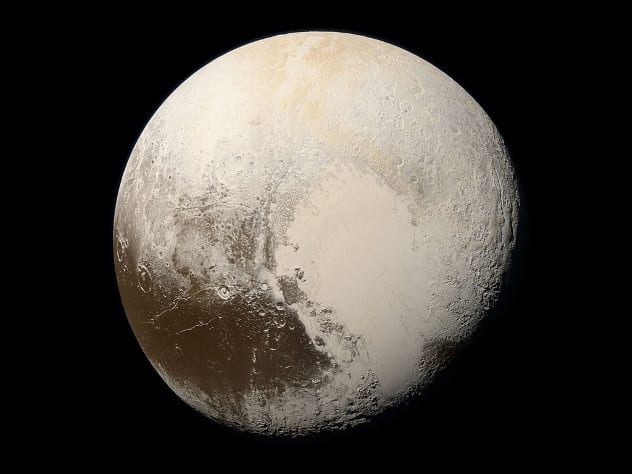
Pluto was considered a planet until April 24, 2006, when the International Astronomical Union (IAU) determined it did not meet the criteria to be called a planet. The IAU declared that a celestial body could only be classified as a planet in our solar system if it’s round, orbits the Sun, and has strong enough gravity to dominate the region of its orbit.
Pluto is round and orbits the Sun, but it falls short of the third criterion. It is strongly influenced by the gravitational pull of its bigger neighbor, Neptune, and Kupier belt objects share its orbit. For this reason, Pluto was relegated to dwarf planet status, leaving our solar system with just eight known planets.
However, New Mexico legislators didn’t agree. In 2007, they passed a law declaring Pluto a planet whenever it appears in the skies above New Mexico. The legislature also declared March 13, 2007, as Pluto Planet Day. New Mexico legislators are very interested in Pluto’s status because Clyde Tombaugh, the man who first documented Pluto, was from New Mexico. Tombaugh also worked as an astronomy professor at New Mexico State University.[1]
9 In The US, Pizza Can Be A Vegetable
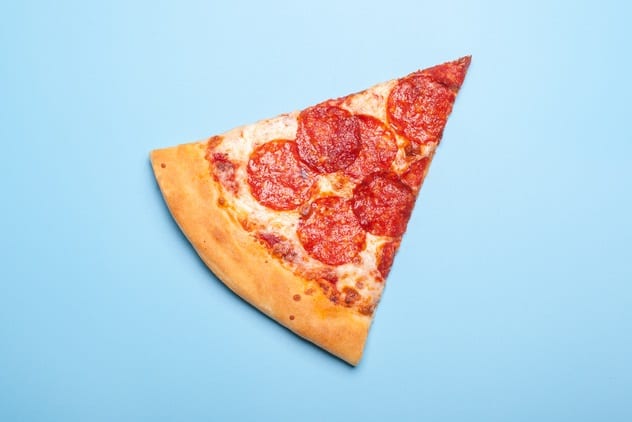
Thanks to the United States Congress, pizza can be classified as a vegetable if it contains two tablespoons of tomato sauce. In 2011, Congress was deliberating on how much would be spent on the federal school feeding program handled by the US Department of Agriculture (USDA). As part of the deliberation, Congress had to determine what kinds of food would be served in schools.
At the same time, the USDA was trying to improve the meals served in schools. The USDA wanted contractors to stop serving certain foods like pizza and chips, which cause obesity, and wanted them to serve healthier foods like vegetables. Lobbyists from the frozen food industry met with congressmen to stop the USDA from yanking pizza off school menus. And guess what: They won.
Because the school feeding program demands that contractors feed students vegetables, lobbyists made Congress determine that any food containing two tablespoons of tomato sauce (like the pizzas served in schools) could be considered a vegetable. And that was how pizzas became vegetables.[2]
8 Brazil Credits Alberto Santos-Dumont With The First Powered Flight

The Wright brothers, Wilbur and Orville, are credited as the first people to make a powered flight. However, Brazilians say otherwise. In Brazil, Alberto Santos-Dumont is regarded as such. Brazil is so serious with its claim that its textbooks make no mention of the Wright brothers.
In October 1906, Santos-Dumont made what Brazilians regard as the first powered flight. He flew 60 meters (197 ft) in his airplane, which he called 14-bis, in front of a crowd in France. News of the Wright brothers’ 1903 flight had not reached France at the time, and Dumont was credited as the first person to make a powered flight.
Things changed two years later, when the Wright brothers arrived in Paris with their airplane. There, they made several flights and revealed that they made the first powered flight in 1903. Brazilians don’t dispute that the Wright brothers flew their airplane in 1903. However, they say the flight was not a powered flight and was only possible due to strong winds.[3]
7 The US And Russia Both Claim They Defeated Nazi Germany

Everybody knows the Allies won World War II. But which of the Allies actually contributed most to the defeat of Germany? Everybody knows it was either the United States or the Soviet Union, but they cannot agree which. Both nations believe they actually won the war, with the other nation playing second fiddle.
In a study conducted in May 1945, right after the fall of Germany, 57 percent of French citizens said the Soviet Union defeated Germany. A paltry 20 percent said it was the United States. However, a study by YouGov UK in 2015 showed that 47 percent of French believe the United States actually contributed the most to the defeat of Germany, while 15 percent say it was the Soviet Union.
The YouGov study revealed people’s opinions of World War II depend on the nation they favor. In this instance, EU citizens favored the US. British citizens said it was Britain that defeated Germany. In Germany, 37 percent believed it was the US that defeated the Nazis, while 27 percent believe it was the Soviet Union. Four percent said Germany caused its own defeat. In another study in 2009, 63 percent of Russians said the Soviet Union could have defeated Germany alone.[4]
To be fair to the Russians, the Soviet Union bore the brunt of the German offensive. The majority of German troops faced the Soviets, and 93 percent of Nazi causalities were from the Russian front. After the war, Joachim von Ribbentrop, the foreign minister of Nazi Germany, said they lost because of the Soviet Union’s unexpected resistance, the superior air power of the Allies, and the weapons the US sent to the Soviet Union.
6 Oklahoma Says The Watermelon Is A Vegetable
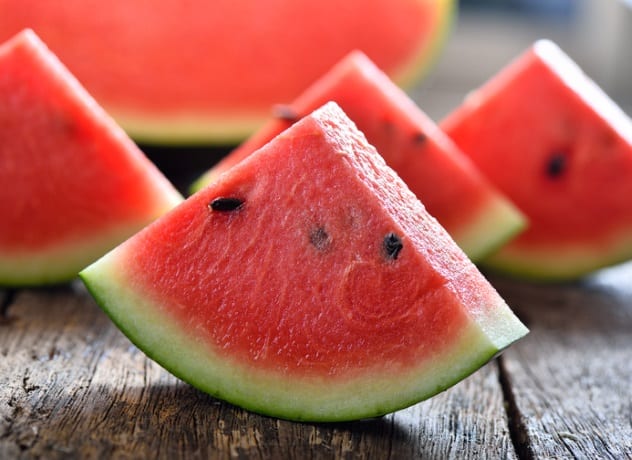
Everybody knows the watermelon is a fruit—except for the Oklahoma House of Representatives, which considers it a vegetable. In April 2007, the house passed legislation declaring the watermelon as the state’s official vegetable. Why couldn’t they have just made it the state’s official fruit? Because the strawberry already holds that title.
The legislature insisted the watermelon could be classified as a vegetable because it was part of the cucumber family.[5] Curiously, the cucumber is really a fruit, even though many people consider it to be a vegetable.
5 Tomatoes Can Be A Fruit Or Vegetable In The US

Whether the tomato is a fruit or vegetable is a controversy that has been around for a long time. It was even at the center of a 19th-century Supreme Court judgment that ruled it was a fruit but would be considered a vegetable for tariff purposes.
But let’s clear it up once and for all: The tomato is both a fruit and a vegetable. Whichever you call it depends on your job and maybe the state you live in. Scientists classify the tomato as a fruit since it contains seeds and is created from the ovary of a flower. However, cooks consider the tomato a vegetable since it is used to make food savory.[6] (The cucumber is in pretty much the same situation.)
Just like with the watermelon, some states have also weighed in to determine whether the tomato should be classified a fruit or vegetable. Ohio considers the tomato a fruit and even made it its state fruit. New Jersey has the tomato as its state vegetable, and Arkansas considers the tomato as both its state fruit and vegetable.
4 The European Union Classifies The Carrot As A Fruit
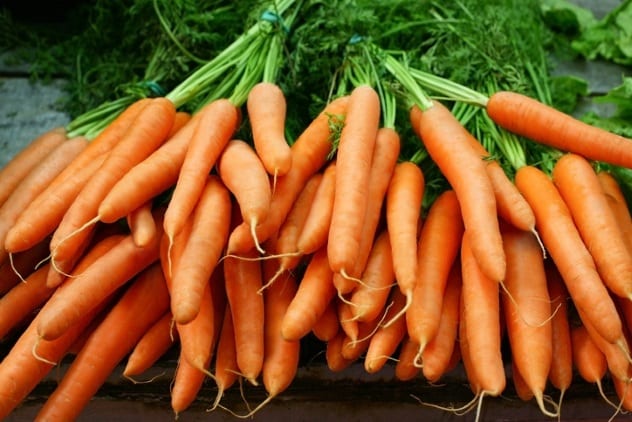
Politicians already know they can mess with our classification of fruits and vegetables, and they will do just that whenever they get the chance. The European Union classifies the carrot as a fruit, even though it is a vegetable. However, there is a caveat: The carrot is only considered a fruit when it is used in jam.
The reclassification was part of the European Union Jam Directive, which is used to determine whether a product could be called a jam or marmalade. Marmalade is a type of jam that contains citrus fruits. It was at the center of controversy in the EU at a time. Some countries wanted to change its definition, while others wanted marmalade to be classified as jam.
Besides the carrot, the EU also determined that other foods, including cucumbers, pumpkins, and sweet potatoes, can be classified as fruits when used in jam.[7]
3 India And Pakistan Both Claim They Won The Indo-Pakistani War Of 1965

India and Pakistan have engaged in a series of wars and skirmishes ever since they gained independence from Britain in 1947. One of the conflicts they fought was the Indo-Pakistani War of 1965. Today, both nations claim they won that war.
The war began when Pakistan sent roughly 30,000 armed men to start an insurgency in the Indian side of the disputed Kashmir region. India discovered the plot and sent in its army to defeat the insurgents. Pakistan drafted its army to support the insurgents, and things quickly went south. India took the whole war further when it attacked the Pakistani province of Punjab.
After a number of offensives and counteroffensives had taken place, the international community got involved, and both nations agreed to end the war and return all captured territory. Today, India says it won the war because Pakistan never captured Kashmir. At the same time, Pakistan insists it won because India never captured the cities of Lahore and Sialkot in Punjab.[8]
2 The Himba People Say Blue Does Not Exist
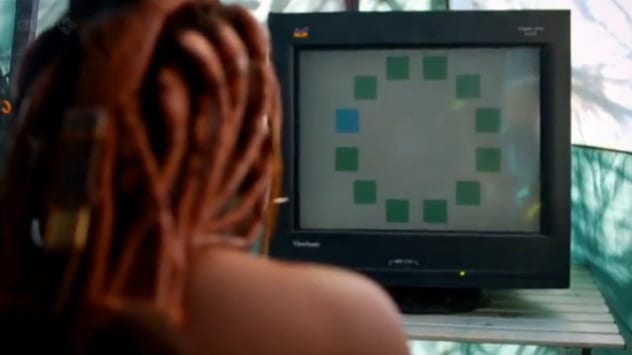
Does the color blue exist? The Himba people of Namibia say it doesn’t. They consider blue as another shade of green and have a hard time telling it apart from green. Interestingly, very few ancient cultures considered blue a distinct color. The ancient Egyptians recognized blue as unique, but that was because they made a blue dye.
Today, while we have a word for the color blue, the Himba people do not. Researcher Jules Davidoff traveled to Namibia to visit the Himba people and understand why they do not recognize blue. Davidoff showed them an image containing 12 squares and told them to show him which was different. They couldn’t, even though 11 squares were green and one was clearly blue. Some managed to detect the color blue, but that was after series of mistakes.
This might sound crazy to us. However, would we have been able to recognize a color we do not have a name for? The answer is probably a no. Most of us will just associate the color with whichever named color it resembles the closest.
Daviidoff confirmed this when he showed the Himba people a similar image with 12 green squares. Eleven were the same, and one was different. The Himba people recognized the different green, since their language recognizes more shades of green than English does. However, most English-speakers would not recognize the distinct green.[9]
1 Both The US And Canada Say They Won The War Of 1812
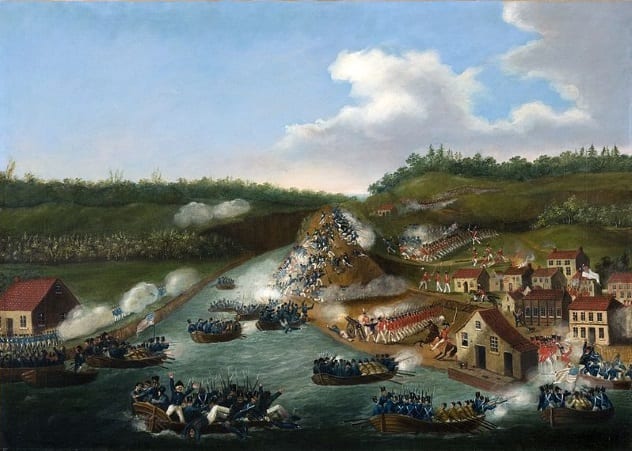
The United States and Canada fought a war that lasted from June 1812 to February 1815. Today, both claim they won. At the start, the US had just kicked Britain out of its territory during the Revolutionary War less than three decades earlier.
However, Britain, which has a long history of hanging around other nations’ territories, still had a field day in Canada, which was still its colony. At the same time, Britain was engaged in the Napoleonic Wars with France. Britain wanted the US to stop trade with France. France wanted the US to stop trade with Britain.
Britain and France passed several laws that left US ships at the risk of seizure if they complied with the laws of either warring country. France generally steered clear of US ships, but Britain had a habit of searching US ships for navy deserters and forcing American citizens into the British Navy.
With several more issues involving Native Americans along the US-Canada border, both countries went to war. The US invaded Canada and burned down Toronto (called York at the time). Canada and Britain struck back when Britain invaded Washington, DC, and burned down the White House.
Today, Americans who remember the war say the US won because it was able to defend its independence and territory from Britain. Canadians say Canada won because they repelled the US invasion. Historians say the war ended in a stalemate.[10]
Read about more facts that may not be as set in stone as you think on 10 Fascinating International Facts That Are Wrong and 10 Widely Believed Animal Facts That Are Totally Wrong.








